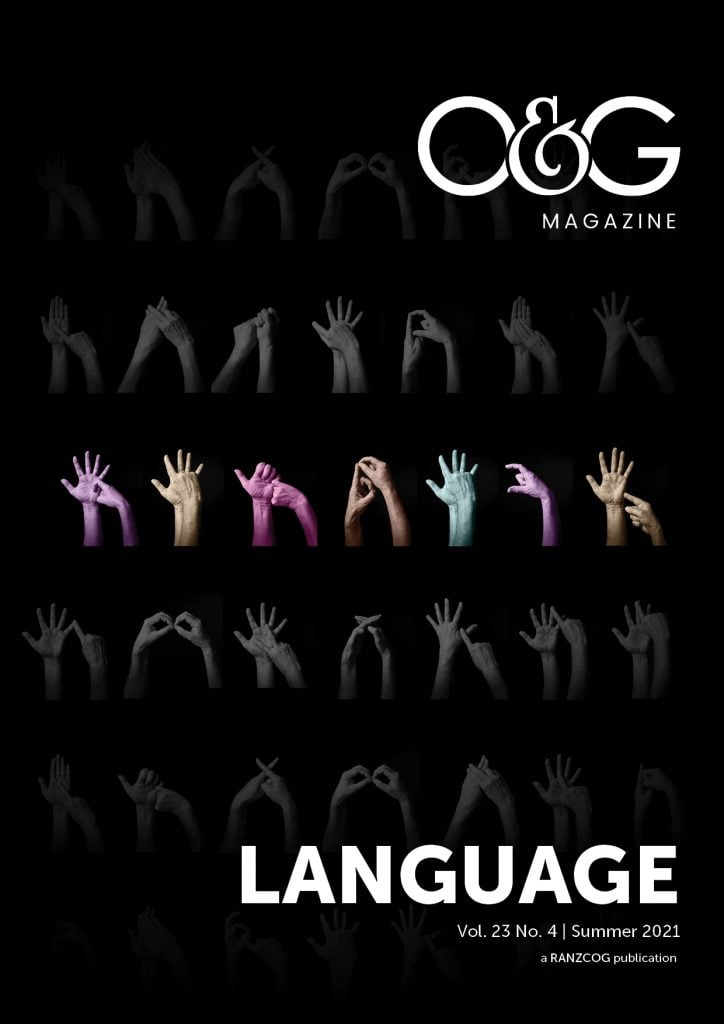‘We don’t just borrow words; on occasion, English has pursued other languages down alleyways to beat them unconscious and rifle their pockets for new vocabulary.’ [James D. Nicoll 1990] 1
The English language has filched an astonishing three quarters of its vocabulary from other languages, and a good example is the sizable French- and Latin-based loot that has ended up in the lexical coffers of Medical English — very little Medical English is in fact English.
We have Anglo-Saxon first aid kits dating from the 9th century, but only a handful of the medical word-hoard of ‘Old English’ survives. Lacnian, meaning ‘to heal’, spawned a number of terms including the all-important læce ‘leech’ or ‘medical practitioner’. But while leeches live on as ‘blood-sucking worms’, most of the old terms have bitten the dust (eg. læcedom ‘a medicine’; læcegetawu ‘medical instruments’; læcecist ‘medical chest’; læceseax ‘lancet’). Of the numerous words for ‘disease’ (eg. coþu, adl, untrumness, suht, unhælth), only seocnes (‘sickness’) survives, more or less in tact. Words to describe the adligende (‘patient’) include unstrang (‘unstrong’), unmeaht (‘weak’), lef (‘injured’), untrymig (‘ill’), unhæle (‘sick’) and besmitten (‘infected’) — only (be)smitten remains to describe the lovesick heart.
One notable survivor, but from the later medieval English period, is midwife (from 1300). This is an interesting word because it nicely preserves relics of earlier meanings that have long departed — wife means here ‘female’ (not ‘married female’, as it does today), and mid means ‘with, by’ (this preposition has totally disappeared). So the midwife was ‘the woman (wife) with (mid) the mother at childbirth’. The word was once commonly pronounced <middiff>, similar to the shortened pronunciation of midwifery; compare housewife > hussif / hussy (clearly the meanings of housewife and hussy have parted ways!) and also goodwife > goodif / goody (‘mistress’, as in ‘Little Goody Two-Shoes’, who gave us goody two-shoes to describe the do-gooder).
The French conquest of English
Midwife is unusual because the medical terminology of ‘Middle English’ was completely overrun by French and Latin words. This marked the beginning of our passionate affair with a practice curiously called ‘borrowing’ (English of course has no intention of giving these words back)! It all started with the Battle of Hastings in 1066. Linguistically, this was a French coup — after William the Conqueror took the throne, the Normans controlled the state, the military, cultural and intellectual interests, and an estimated 10,000 French words flooded into these areas, sometimes as brand-new additions, sometimes ousting the Old English expressions, and sometimes existing side by side (but usually diverging in meaning and style).
Among the sciences, it was medicine that incorporated the largest number of these; even some of the Latin and Greek medical terms came into English via Anglo Norman.2 Most of these words are still the core of modern Medical English, and the following are just some examples:
medicine, surgery, surgeon, doctor, physician, patient, malady, pain, disease, apothecary, distemper, palsy, pleurisy, gout, jaundice, infection, plague, pestilence, pus, pustule, contagion, anatomy, remedy, ointment, hospital
English ‘would play the bankrupt with books’
The pilfering continued during the Renaissance period (the start of ‘Modern English’) and during the centuries that followed. Every new discovery, every new invention, needed a name, and those that were created were overwhelmingly Latin and Greek in their derivation. Quite simply, people felt English wasn’t up to the task of creating specialist terms such as those needed in medicine — indeed, in 1613 Francis Bacon described English as being among those modern languages that ‘would play the bankrupt with books’.3
Scholarly vocabulary flooded in, and this changed the nature of English for all time. Giving objects and concepts a classical name gave them an exclusivity, and this bred a kind of intellectual snobbery. Even ordinary language was crammed full of classically inspired expressions to replace those native English ones deemed not up to scratch. Words such as deruncinate (‘to prune’), pistate (‘to bake’) and carbunculate (‘to burn’) were ‘inkhorn terms’, the 16th century label for over-the-top literary coinages (cp. the contemporaneous expression ‘to smell of the inkhorn’ meaning ‘to be pedantic’).4
Some of these were also undoubtedly ‘hothouse words’, a label created by Arthur Kennedy in 1927 for the ‘ponderously erudite’ words coined by early dictionary makers, who then placed them into their word books.5 Perhaps they felt that hothouse sprouts like galericulate (‘covered as with a hat’), gymnologize (‘to dispute while naked’) and nugipolyloquous (‘speaking much about trifles’) could be useful, or perhaps they simply wanted to display their knowledge of Greek and Latin. Whatever the motivation, once placed in the protective environment of the hothouse, many of these words survived by being picked up by later dictionaries (plagiarism being a common lexicographical practice). Doctiloquent (‘speaking learnedly’); defensative (‘a medicated ointment’); dropacist (‘a depilatory’); diaciminon (‘a preparation for “windines in the stomack”’) are just some of the medically useful D entries of Thomas Blount’s Glossographia; or, a dictionary interpreting the hard words (1656). Like most, these never made it out of the hothouse.6
The quacks seemed to have the most fun with these grandiloquent words. My favourite example is the patter accompanying one quack’s ‘Friendly Pills’.7 Also known as the ‘Never Failing Heliogenes’, these remarkable tablets worked on the ‘Gelastick Muscles’ in ‘several seven different ways’: ‘Hypnotically, Hydrotically, Cathartically, Proppysinatically, Hydragoicially, Pulmatically, and last Synecdochically, by corroborating the whole Oeconomia Animalis.’
Whether these quacks were well-intentioned or not, one thing they all excelled at was the art of publicity — and puffery.8 And it’s probably not surprising that this time coincides with the deterioration of the verb to doctor: ‘to treat, as a doctor or physician; to administer medicine or medical treatment to’ > ‘to falsify, tamper with, adulterate’. According to the Oxford English Dictionary, the first appearance of this negative meaning in print was in 1777. I also find it telling that apothecary is among the 4,000 colloquialisms in Captain Grose’s Dictionary of the Vulgar Tongue (1785); Grose defines apothecary as: ‘to use hard [= obscure] words; from the assumed gravity and affectation of knowledge generally put on by the gentlemen of that profession, who are commonly as superficial in their learnings as they are pedantical in their language’.
I should add here that some ‘hard words’ from this time did in fact survive, and a number are now even part of everyday language (eg. agile, crisis, exact); they include basic medical terms (eg. epilepsy, glottis, larynx, pancreas, pneumonia, skeleton, temperature, tendon, thermometer, tibia, virus).
A black eye versus a circumorbital haematoma
The vocabulary of Modern English shows an interesting hierarchical patterning that is the fall-out of this linguistic larceny. I’ve always found a carpet analogy helpful here (but don’t push it too far). Our native English vocabulary, the words of Germanic origin, provide the basic underlay; in other words, our everyday vocabulary (eg. body, blood, finger). Typically these words are shorter, more concrete and stylistically neutral; they include the obscenities (ie. the worst of ‘four letter words’) and the grammatical words (eg. a, the, and, be). In fact, 96 of the 100 most frequent words in written Modern English appeared in Old English.9 The other four (are, they, them, their) are Old Norse, a close relative of English — so close in fact that it’s difficult to assess the true extent of the Viking contribution to English. It’s not clear, for example, whether ill was Old English or entered from Old Norse (does it even matter if the two were basically dialects?).
But to continue my floor covering analogy, this Germanic underlay or foundation supports a quality carpet on top — a kind lexical superstructure comprising vocabulary items of refinement and nuance that come to us from French. Dotted on top of this quality carpet are the classy scatter rugs. These are the words with connotations of learning, science and abstraction, and they come to us from the classical languages, mainly Latin and Greek. These two have long been the deodorising languages for English (eg. perspire instead of sweat, expectorate instead of spit, defecate and faeces instead of shit, anus instead of arsehole, genitals or genitalia instead of sex organs).
The contrast in style is striking when the Romance and classical superstructure provides the adjectives for Germanic nouns: compare English nouns like mouth, nose, tooth with the Romance-inspired adjectives oral, nasal, dental. When English does offer an adjective, there’s a world of stylistic difference — oral, nasal, dental versus mouthy, nosey, toothy.
Bring back flesh-strings and arse-ropes
So, should we expunge the linguistic aliens and restore the lost English vocabulary — unleech (‘bad physician’), flesh-strings (‘muscles’), arse-ropes (‘intestines’) perhaps? In fact, this very idea has cropped up throughout the recent history of English, with a number of people wanting to abolish altogether the French and classical dimension to the lexicon. They include influential writers like Charles Dickens and Gerald Manley Hopkins through to the modern-day conlangers (or constructed language users). Some have sought to revive lost native vocabulary like inwit instead of conscience. Some have gone as far as inventing words. Among the gems coined by Australia’s own Percy Grainger is cut-cure-craft for surgery. It never took off, not surprisingly — neither did gainst-stir (for reaction) or meat-shun-ment (for vegetarianism).
So now to some sort of conclusion, or endsay. Were we to put Medical English into a winnowing mill and blow all the borrowings out, there wouldn’t be much left — certainly little of lexical excitement. In fact, it’s dismal to imagine an English without its exotics — medicine would return to leechcraft, horticulture to wortcraft and my own discipline of linguistics to speechcraft or speechlore. I can’t imagine dentists wanting to be tooth-drawers again. The British humorist Paul Jennings once rendered the opening lines of Hamlet’s famous soliloquy into pure English. It began: ‘To be or not to be; that is the ask-thing’. Says it all really.
Our feature articles represent the views of our authors and do not necessarily represent the views of the Royal Australian and New Zealand College of Obstetricians and Gynaecologists (RANZCOG), who publish O&G Magazine. While we make every effort to ensure that the information we share is accurate, we welcome any comments, suggestions or correction of errors in our comments section below, or by emailing the editor at [email protected].
References
- Linguist List has a discussion of James Nicoll’s now famous quotation, available from: linguistlist.org/issues/13/13-499.
- Faure, Pascaline. From accouchement to agony: a lexicological analysis of words of French origin in the modern English language of medicine, in Lexis: Journal in English Lexicology 11. 2018. journals.openedition.org/lexis/1171.
- Bacon, Francis. The Works of Francis Bacon. Volume 1 (edited by Basil Montagu). Philadelphia: A Hart, Late Carey and Hart. 1852:p5.
- The label inkhorn originally referred to the horn inkwell of scholars, and the phrase inkhorn term is first attested in the 1543 work by religious reformer John Bale (‘bilious Bale’, as he was nicknamed): ‘Soche are your Ynkehorne termes.’ (1543: v; OED).
- Kennedy, Arthur G. ‘Hothouse Words versus Slang.’ American Speech 2. 1927;(10):417-24.
- Michael Quinion has a lovely discussion of inkhorn terms, those that did survive, as well as the ‘jaw-breaking monstrosities’ that didn’t; available from: www.worldwidewords.org/articles/inkhorn.htm.
- The full spiel appears on pages 142-44 of C. J. S Thompson’s glorious account (1928): Quacks of Old London; Walker. R. B.
- Quacks were aptly named. The most likely origin was Dutch quacken (kwaken) ‘to chatter, boast’, a plausible figurative use of quacken ‘to quack, croak’ (reference being to the quacksalvers’ loud and bragging promotion of their products). The full form quacksalver came into English in the 16th century from Dutch.
- Figures are based on computational analysis of modern American English; see C. M. Millward & Mary Hayes (2012) A Biography of the English Language, Wadsworth, Cengage; p126.






Leave a Reply